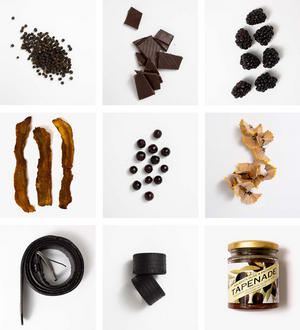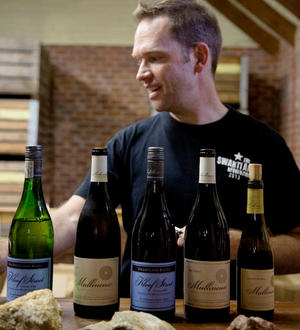2018 Mullineux, Schist Syrah, Swartland, South Africa
- Red
- Dry
- Full Bodied
- Syrah
- Neal Martin MW
- 94/100
- Anthony Mueller
- 95/100
Add to wishlist
Product: 20181300840
75 cl Bottle
Colour Red
Sweetness Dry
Vintage 2018
Alcohol % 13.5
Grape List Syrah
Body Full Bodied
Property Mullineux & Leeu Family Wines
Critics reviews
Neal Martin MW 94/100
The 2018 Syrah Schist was matured identically to the Granite Syrah. It is more open on the nose, with more red fruit than the 2018 Granite, raspberry and wild strawberry commingling with briar, white pepper, wild fennel and light Provençal herb aromas. The palate is medium-bodied with fine-grained tannins, cohesive and finely chiselled, and the finish shows more precision and nuance than the Granite. Chris and Andrea Mullineux told me that this was their favourite Syrah in 2018. Mine too.Drink 2024 - 2042Neil Martin, Vinous.com.com (April 2021)
Drink 2024 - 2042
Anthony Mueller 95/100
Awe-inspiring stuff, the 2018 Schist Syrah begins with a compact frame and intoxicating floral expression with a dark red-fruited nature and complex rocky tones under gorgeous aromas of violets and white pepper. Medium-bodied, the palate is impeccably balanced, offering juicy acidity and fine-grained tannins that will undoubtedly integrate over time to be completely seamless. This delicious Syrah concludes with fantastic highlights of crunchy red fruit and game hints and is my top vote for Mullineux's soil-series Syrah this year. Bravo! I find myself pausing and smelling the wine in the glass rather than drinking it, which is a sign of world-class wine to me.Drink 2022 - 2042Anthony Mueller, Wine Advocate (June 2022)
Drink 2024 - 2042
About this wine

Syrah/Shiraz
A noble black grape variety grown particularly in the Northern Rhône where it produces the great red wines of Hermitage, Cote Rôtie and Cornas, and in Australia where it produces wines of startling depth and intensity. Reasonably low yields are a crucial factor for quality as is picking at optimum ripeness. Its heartland, Hermitage and Côte Rôtie, consists of 270 hectares of steeply terraced vineyards producing wines that brim with pepper, spices, tar and black treacle when young. After 5-10 years they become smooth and velvety with pronounced fruit characteristics of damsons, raspberries, blackcurrants and loganberries. It is now grown extensively in the Southern Rhône where it is blended with Grenache and Mourvèdre to produce the great red wines of Châteauneuf du Pape and Gigondas amongst others. Its spiritual home in Australia is the Barossa Valley, where there are plantings dating as far back as 1860. Australian Shiraz tends to be sweeter than its Northern Rhône counterpart and the best examples are redolent of new leather, dark chocolate, liquorice, and prunes and display a blackcurrant lusciousness. South African producers such as Eben Sadie are now producing world- class Shiraz wines that represent astonishing value for money.

Mullineux & Leeu Family Wines
Mullineux & Leeu Family Wines is one of the stand-out producers in South Africa's budding Swartland region. Winemakers Chris and Andrea Mullineux’s ambition is to bottle wines that are a true expression of the Swartland, and all steps of their winemaking process are taken with this in mind. They work closely with a select group of growers who follow sustainable, reasoned farming practices, as well as owning vineyards at their Roundstone Farm in Riebeeksrivier. In the cellar, apart from minimal amounts of sulphur, nothing is added to or removed from the wine. They do not make use of any yeasts, acids, tannins, enzymes, or fining and filtering agents. “Leeu” (Afrikaans for “lion”) was added to the name recently to recognise the contribution of a new investor to the project. Apart from their wonderful Syrah, Chenin Blanc-based white blend and a super-rich Straw Wine made from air-dried Chenin Blanc, fermented and matured in old barriques, Mullineux now has a range of spectacular single-terroir Syrah and Chenin Blanc wines, each of which illustrates the amazing potential of the differing Swartland soils. Volumes of the single-vineyard wines are tiny, so availability is extremely limited.
